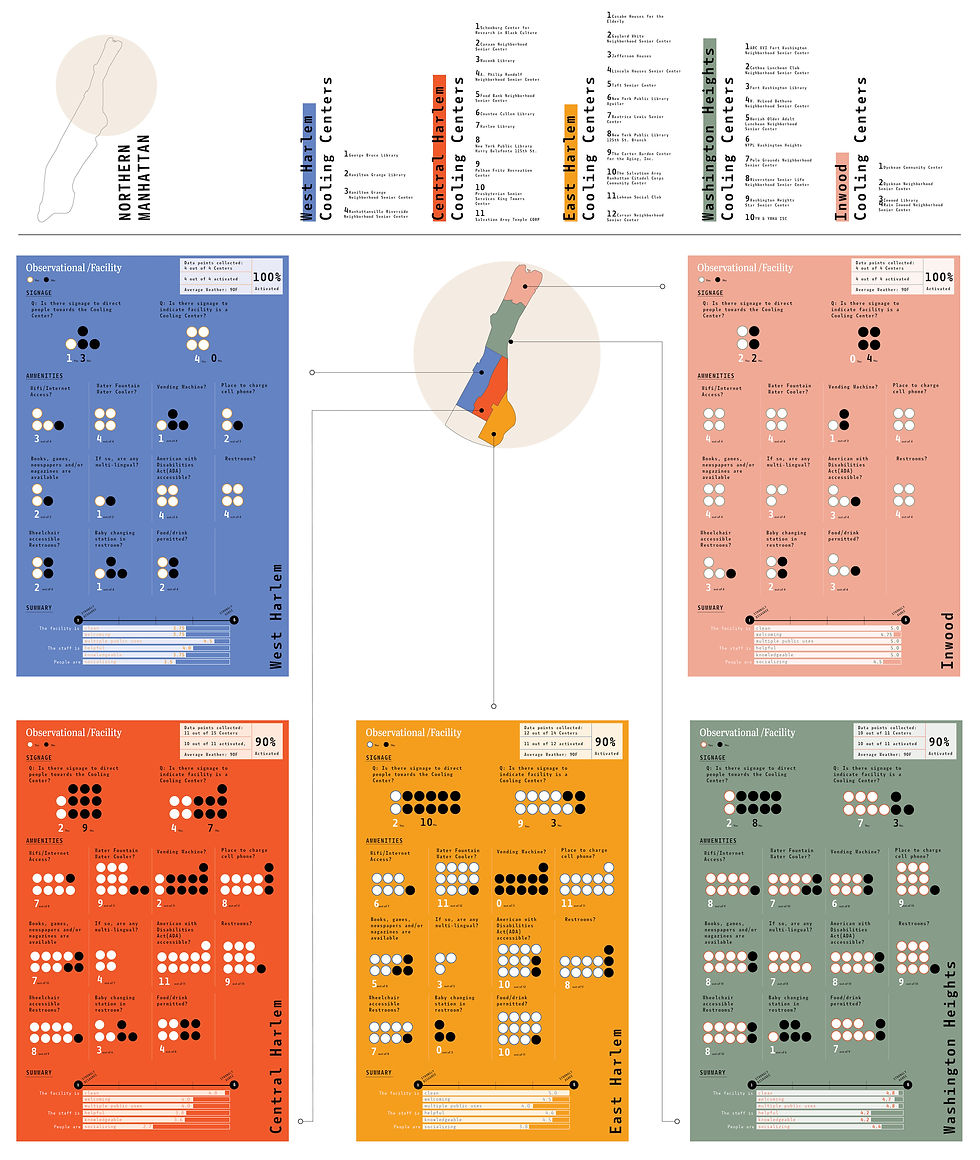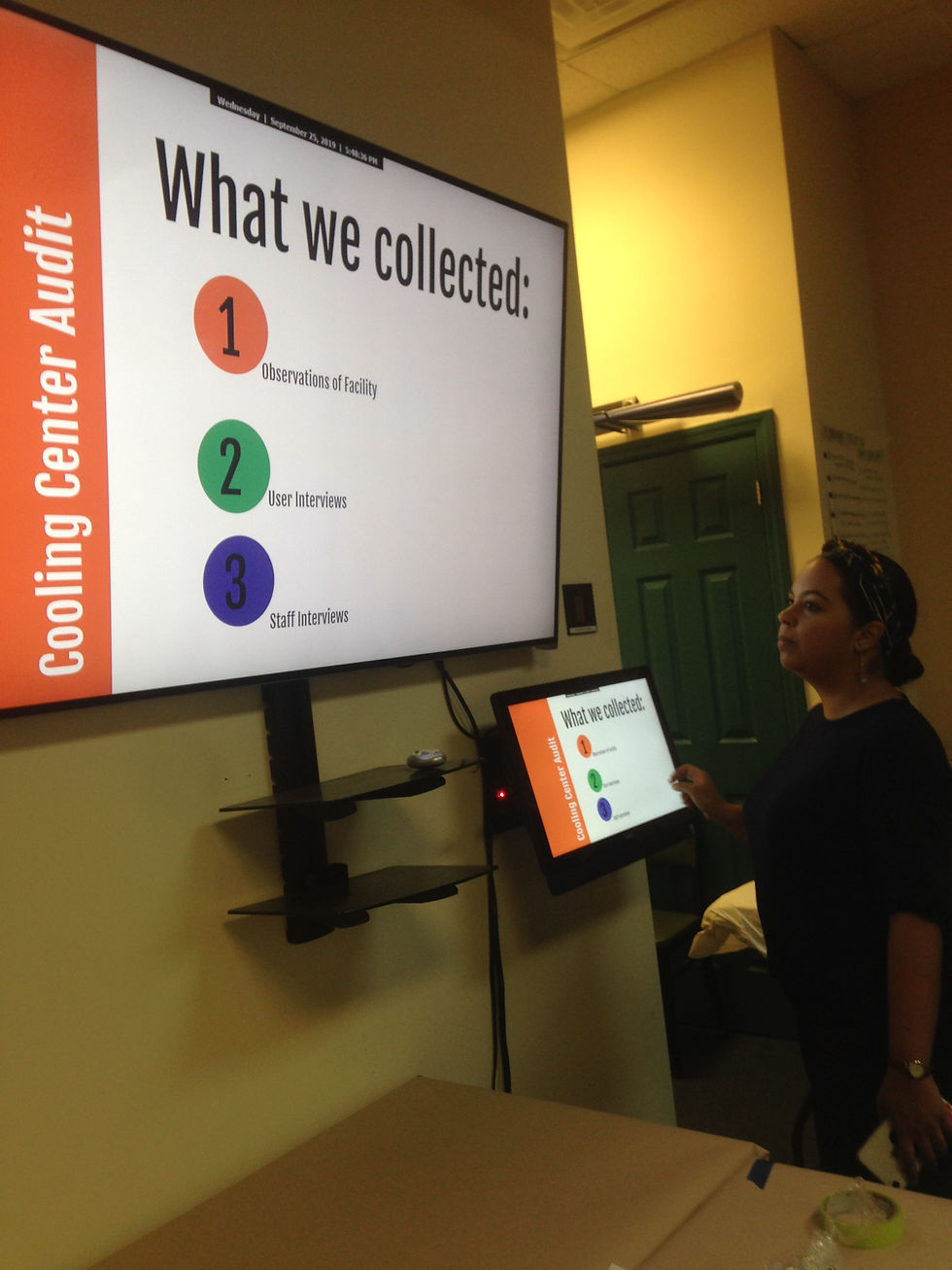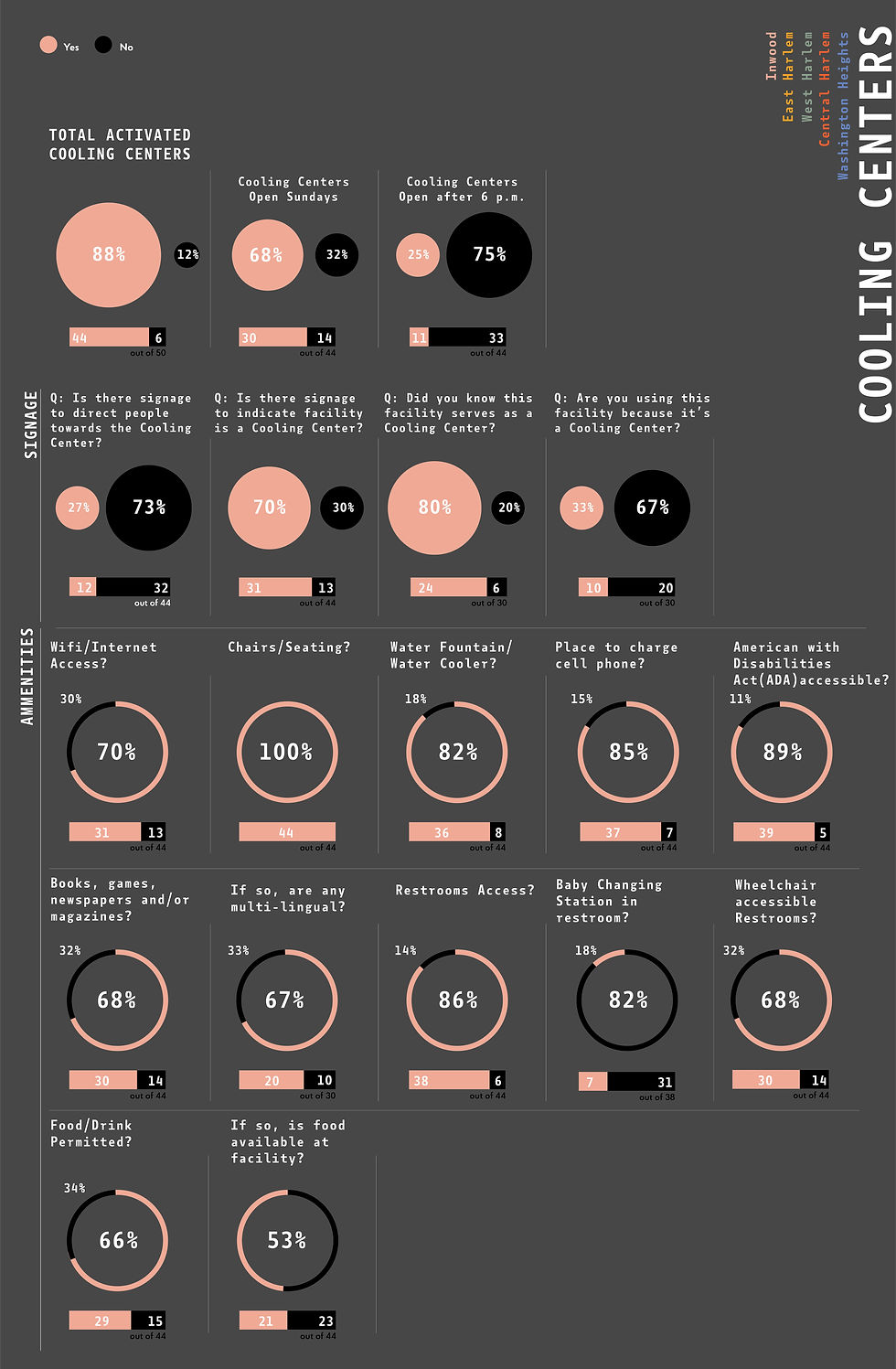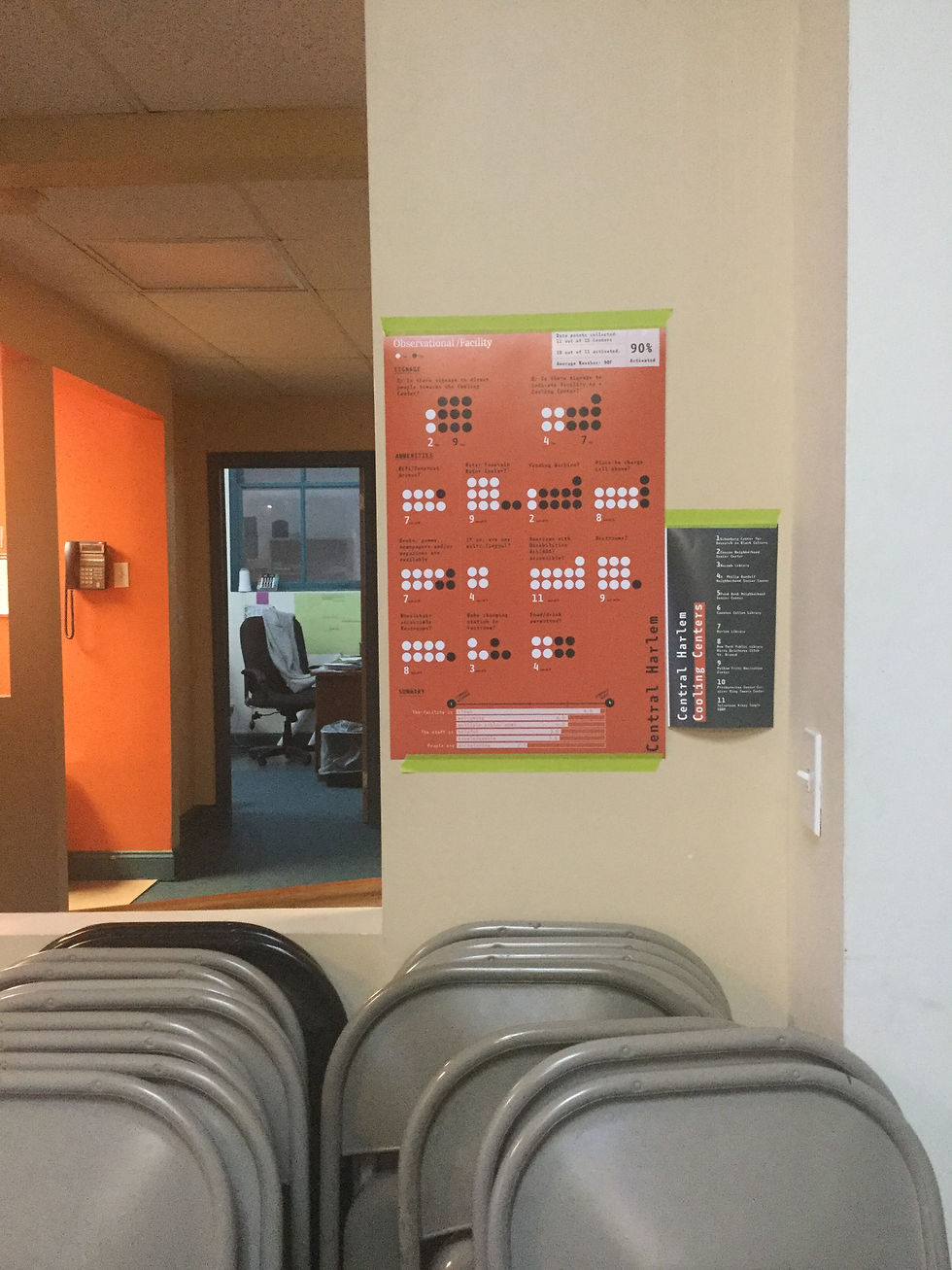
In NYC, low-income communities are disproportionately affected by extreme heat. To help New Yorkers adapt to extreme heat events during the summer months, the City of New York implements Cooling Center Programs.
We partnered with We Act, a Harlem-based organization advancing environmental justice, and the We Act Climate Justice Working Group (CJWG) to conduct an audit to assess the efficacy of the city’s Cooling Center program in Northern Manhattan.
We led the co-design process with CJWG community members. We redesigned their community audit survey, designed and facilitated workshops where members analyzed their findings, identified insights, and co-created recommendations for policy improvements.
We guided CJWG members in redesigning their community audit survey by employing a co-design approach. We designed and led participatory data analysis workshops that allowed members to analyze their findings, identify insights, and co-create recommendations for policy improvements.
PROJECT
OVERVIEW
The community-led audit and research revealed chronic malfunctions and inadequacies at the cooling center sites. CJWG members identified areas of improvement and translated them into policy-focused design outcomes. These community-backed recommendations were further developed with the Northern Manhattan City Council to inform Intro 1563, a legislative bill establishing citywide standards to improve NYC’s cooling centers during extreme heat.
The model of co-designing with the community continues to be utilized and expanded upon in WE ACT’s cooling center advocacy efforts.
Embedding community input directly into research, design, and advocacy processes ensures that those with lived experience and most impacted by climate risks in their neighborhoods actively contribute to shaping the city’s policies.
OUTCOMES


Audit Tool
DESIGN APPROACH

Audit Tool
Climate Justice Working Group (CJWG) members used a paper survey tool to collect observational and ethnographic data on 3 focus areas:
1. The condition of the facilities being used as cooling centers
2. User experiences while at the cooling center facility
3. Level of heat-related knowledge of staff at cooling center facility

PHASE 1
CO DESIGNING THE AUDIT TOOL


We co-designed the audit tool with CJWG to be used to collect data from functioning cooling centers during the summer months of 2019. When designing the survey, we considered varying degrees of interaction needed for members to gather information on site. The activities ranged from traditional one-on-one interviews, user journey mapping and surveys, allowing community members to be design researchers in their own right.
COMMUNITY MEMBERS
AS DESIGN RESEARCHERS
A COMMUNITY-LED AUDIT SHAPING CLIMATE JUSTICE POLICY
PARTNER
WE ACT Environmental Justice Organization
Policy & Advocacy Coordinator + Climate Justice Working Group (CJWG)
PROJECT DURATION
2019 | 3 months
ROLE
Design Researcher, Co-Facilitator, Lead Visual Designer
TEAM
Team of 2
Co-Design Strategist, Facilitator : Lorena Estrella
SENSEMAKING WORKSHOP 1
At the start of the workshop members were encouraged to view each data visualization poster containing an overview of the data.
Separating into smaller teams, the members sifted through the qualitative data points, pulling out key information then synthesized the data to form clusters of themes and patterns. Having each group share out their themes collectively enabled all members to see the results and commonalities.
SENSEMAKING WORKSHOP 2
We used the prototyping process to get the community members comfortable with testing out their ideas. We guided them through the process of framing problems and using “How Might We” statements which led to brainstorming of ideas and potential solutions. We introduced the use of prototyping tools such as storyboarding, sketching & the use of roleplaying for members to create representations of their solutions.
Data Visualization
Using the audit tool, CJWG conducted audits of (5) Cooling Centers in Northern Manhattan neighborhoods; West Harlem, Central Harlem, Inwood, East Harlem & Washington Heights. Data Visualization posters were then designed using the data collected.



RECOMMENDATIONS FROM CJWG MEMBERS INCLUDED IN LEGISLATIVE STUDY BILL


PHASE 2
SYNTHESIZING DATA
We designed & facilitated (2) Sensemaking workshops.
Using the data collected by CJWG, members had the opportunity to analyze the results by identifying gaps and needs, make recommendations and explore localized solutions to address urgent needs for next year’s summer roll out of cooling centers.








